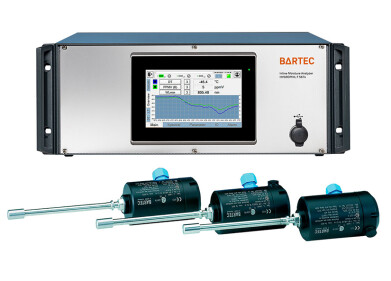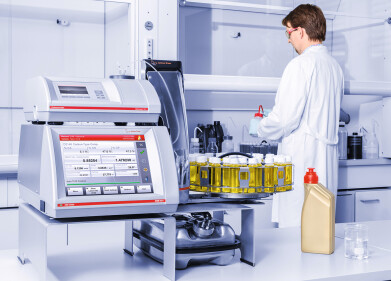Measurement and Testing
Why is Testing Important for Lithium Ion Batteries?
Sep 28 2022
The UN hails lithium ion batteries as “the critical pillar in a fossil fuel-free economy”. Recent advances in electric vehicle (EV), stationary energy storage systems and other lithium ion battery technologies have helped slash greenhouse gas emissions and promote the use of alternative energy solutions.
Testing is a critical part of the process, with new methods and techniques designed to accelerate the uptake of lithium ion batteries and ensure the technology is safe, efficient and consumer friendly. Read on to find out more about why testing is so important for lithium ion batteries.
Safety
Safety is front and centre when designing lithium ion batteries. Whether the product is a handheld electronic device or an EV, the safety of the end user should always take priority. Despite being incredibly efficient, lithium ion batteries rely on flammable electrolytes. This significantly increases the fire risks associated with lithium ion batteries. Subpar safety testing can result in serious issues, as demonstrated by the Samsung Galaxy Note 7 recall. Following several self-combustion incidents on airplanes caused by batteries overheating, Samsung was forced to cease production of the Galaxy Note 7 altogether.
As well as protecting end users, testing has an important role to play during handling and transport. Regulations like UN3480 outline strict rules and requirements lithium ion batteries must meet before being shipped. Major transport bodies like the International Air Transport Association (IATA) also set rules.
Battery performance
Energy density and power density are both major concerns when designing lithium ion batteries. Respectively, they describe how much energy a battery can store and generate, relative to its mass. Testing is used to design lithium ion batteries with excellent energy and power density. Analytical techniques like Fourier Transform Infrared (FT-IR) Spectroscopy and Gas Chromatography Mass Spectrometry (GC/MS) are used to test individual components and improve performance. Testing is also invaluable when addressing issues like self-discharge and flammability.
Addressing the climate crisis
Lithium ion batteries have a pivotal role to play in the global transition to clean energy. In a recent report prepared for the United Nations Framework Convention on Climate Change, the Inventory of U.S. Greenhouse Gas Emissions and Sinks revealed transportation accounted for a huge 27% of all US greenhouse gas emissions in 2020. Contributors include privately owned cars, as well as commercial trucks, aircraft and trains.
The need to slash carbon emissions is urgent and experts warn the planet can’t wait for advances in lithium ion battery technology. This is where innovations in gas analysis and combustion control step up. Find out more about the steps industrial operators are taking to meet regulatory requirements and hit carbon reduction targets in ‘The role of combustion in decarbonization strategies’.
Want to know more about lithium ion batteries? Don’t miss our complete guide to the technology in ‘Lithium Ion Batteries: Types, Testing & Uses’.
Digital Edition
PIN 25.1 Feb/March
March 2024
In This Edition Safety - The technology behind the ION Science Tiger XT - Safety with ammonia and LOHCs as hydrogen carriers Analytical Instrumentation - Discussion on new tribology te...
View all digital editions
Events
Apr 28 2024 Montreal, Quebec, Canada
Apr 30 2024 Birmingham, UK
May 03 2024 Seoul, South Korea
May 05 2024 Seville, Spain
May 06 2024 Riyadh, Saudi Arabia


















